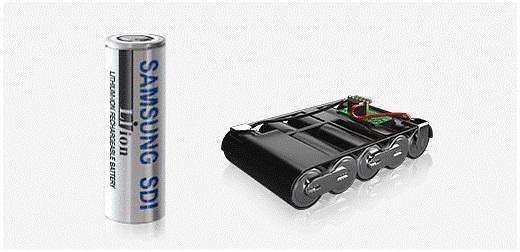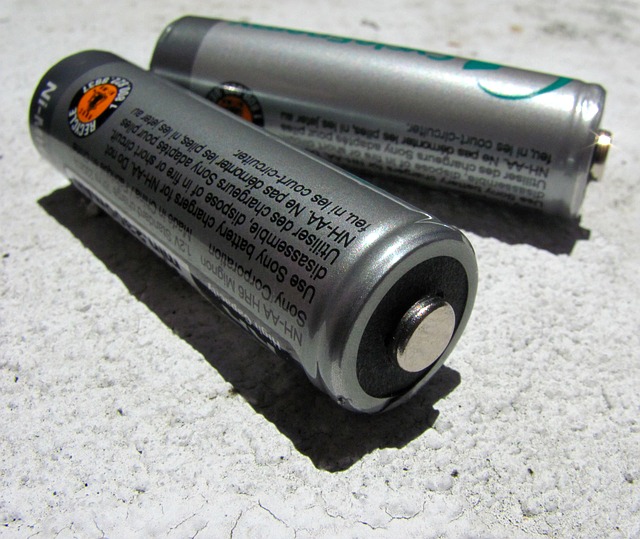Discussion on Lithium ion battery types
Jul 25, 2019 Pageview:1170
There are different types of Lithium ion batteries in individual homes most of which are to the users’ knowledge although some of them go unnoticed. Particularly in our mobile phones is where most of us have this type of battery. The high energy density present in these batteries is what makes them most portable and the fact they can be recharged makes them all the more worthwhile and able to last for long. Because of such batteries, technology has made it so that we have aircrafts that only feature electric propulsion, a good example being the solar impulse aircraft. The fact that multiple types of Lithium ion batteries exist and are actively involved in the comfort we experience every day, it is important to understand what these batteries really are.
Types of Lithium ion battery cell
There are five different types of Lithium ion batteries. Each of them features their distinct features although there is some level of similarities between these batteries. They include;
· Lithium-Cobalt Oxide battery
This type of battery is mostly used in the electronics that are held on the hand because of their safety and density. A good and well relatable example of devices that are handheld and employ the use of this type of Lithium ion battery is the common laptops, mobile phones and even cameras. This type of battery is normally very risky particularly when they become damaged and should be safely disposed immediately. Cobalt is one of the components of this battery, and as commonly known, this product is very scare and therefore very expensive to acquire. The lithium-cobalt oxide battery registers the highest energy density that records up to between 110 and 190 Wh per kilogram (Wh/kg).
· Lithium-titanate battery
This is another type of the Lithium ion battery that stands out because of its inability to serve below -40 degrees Celsius. At this temperature, it is rendered inactive. It is important to note that this battery can be charged and discharged very fast and has been applied in the Mitsubishi i-MiEV. It registers a lower inherent voltage of 2.4V when this value is compared to the storage voltage of 3.8V. The energy density as recorded by this battery is lower, standing at between 30 and 110 Wh/kg.
· Lithium-ion phosphate battery
This battery cuts down the chances of overheating and fire by a notable margin making it one of the safest batteries. It is able to offer by far, a less volumetric capacity so much so that it is employed in power tools and medical tools and equipment. Its use is primarily because of its durability and is inherently safe to use. The energy density registered by this battery is lower standing between 95 and 140 Wh/kg.
· Lithium-Nickel Manganese Cobalt Oxide Battery
This battery delivers a longer life and is inherently safe. As mentioned, it employs the cobalt property which is not only rare to find but also very costly. Upon use, it is notable that this battery is less likely to heat and as such, it is used in power tools, electronic bikes and electric power trains. The energy density stands low between 95 and 130 Wh per kilogram.
· Lithium-Manganese Oxide battery
This is a low cost battery with a longer life and is inherently safe. It is used I the hybrid vehicles as well as in cell phone and laptops because it is a battery that offers very high rates of discharge. The energy density is low at 110 to 120 Wh/kg.
Lithium ion battery types comparison
The lithium cobalt oxide battery has a specific energy as compared to the other batteries. This element makes it the ideal choice for handheld devices like laptops and mobile phones. It also features a low cost and moderate performance. Nonetheless, this battery is not good in all the other considerations when compared to the other batteries in its line. It features low specific power, low safety and even low lifespan.
The lithium manganese oxide on the other hand has an average specific power and moderate specific energy. It also features a moderate degree of safety when compared to its counterparts. The main advantage of this battery is that it offers low cost. However, her disadvantages include low performance and a low degree of service in terms of durability.
The Lithium Nickel Manganese Cobalt Oxide has a couple of pros contrary to the other batteries. One, it offers a very high specific energy and two, its low cost. The first advantage makes it ideal for use in electric powertrains. However, when it comes to specific power, safety and lifespan, this battery offers an average output.
Lithium Nickel Cobalt Aluminum Oxide on the other hand only delivers a single strong pro as it offers a high specific energy. The other considerations are not amazing when compared to the other batteries.
When it comes to Lithium iron phosphate, this battery only features a single con in that it has a very low specific energy.
How to use different lithium ion battery types properly
The best way to use such batteries is by storing them in the ideal conditions such as in places where they are fireproof. However, another important consideration is that you ensure that in using them , you obey the principles of accuracy so much so that you do not use one battery for purposes which ought to be used by the other. This is because of parameters such as their specific energy and their energy densities make them ideal for particular uses. Keeping them optimally charged is another way to use them appropriately while at the same time, we should not overcharge them.
Conclusion
The different type of lithium ion batteries have different specifications that make them most appropriate for the work in which they are applied. Care should be taken in using them in the right way so that they not only last long and serve well but also remain in a good condition so that they serve better.
- Prev Article: Tell me more about DIY 18650 battery charger
- Next Article: How Do You Deal With Rechargeable Li-Ion AA Batteries?
Leave Message
Hottest Categories
-
Hottest Industry News
-
Latest Industry News











